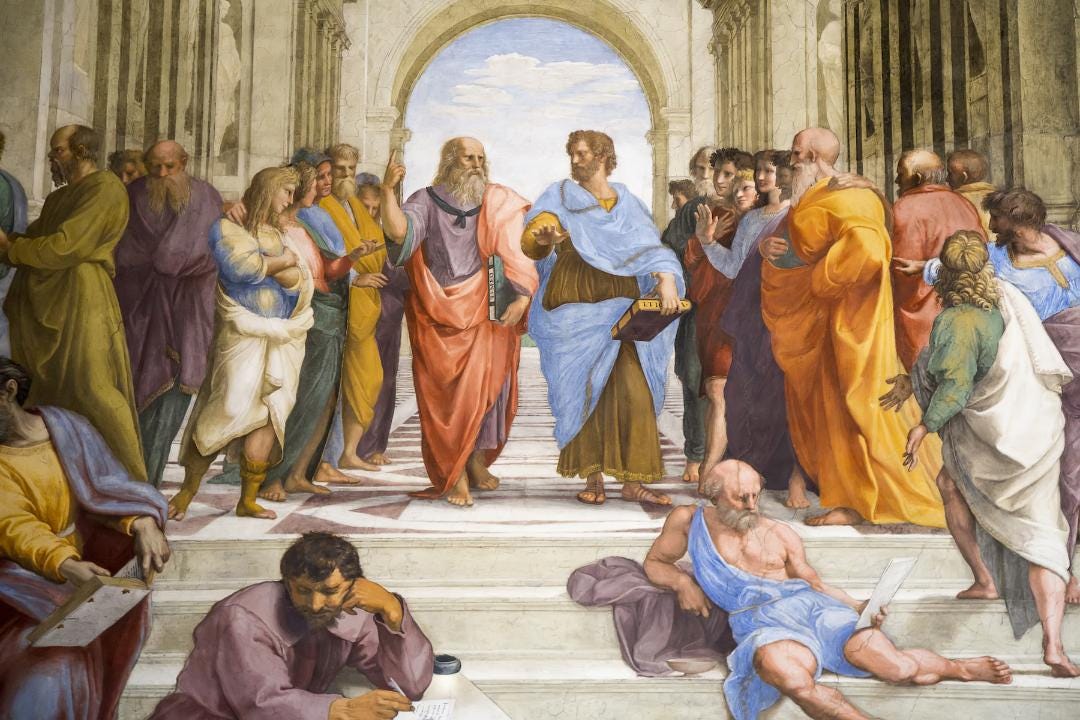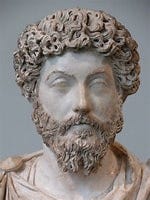How Dr. Mandelbaum Changed My Life: The Transformative Power of Philosophy
Views & Reviews: essays and book reviews
How did I stumble onto philosophy? In college, I initially majored in business administration, with my days filled with lectures on macroeconomics, marketing trends and strategies, and statistics. I thought a business degree would contribute to my financial success. Because I was bored, I decided to change my major field of study, ultimately landing on an introductory philosophy course that would change my life forever.
A New Perspective on Life
Dr. Mandelbaum taught “Introduction to Philosophy.” Enrolling in that first philosophy course opened a doorway to an exciting new world where questions about existence, purpose, and morality took center stage. I began to explore the works of great philosophers, from Heraclitus and Socrates to Nietzsche and Russell, each offering unique insights into the human condition. The subject became more than an academic pursuit; it became a lens through which I viewed the world.
I was hooked on philosophy!
Through the study of philosophy, I developed a profound appreciation for the complexities of human nature. The Socratic method, with its emphasis on questioning and critical thinking, encouraged me to challenge my assumptions and beliefs. This practice of continuous questioning led to a deeper understanding of myself and the world around me. I learned to embrace uncertainty, recognizing that the pursuit of knowledge is an ongoing journey rather than a destination.
The Art of Critical Thinking
One of the most significant ways philosophy enriched my life was by honing my critical thinking skills. Engaging with philosophical texts requires a level of analytical rigor that transcends superficial understanding. I learned to dissect arguments, identify logical fallacies, and construct coherent, well-reasoned viewpoints. These skills proved invaluable not only in my academic endeavors, including law school, but also in everyday decision-making.
Critical thinking became a tool for navigating the complexities of life as well as the challenges of a trial lawyer. Whether it was evaluating career choices, making ethical decisions, resolving conflicts, or preparing a case for trial, the ability to think critically provided a solid foundation. I found myself more equipped to weigh the pros and cons, consider alternative perspectives, and arrive at balanced and justifiable conclusions. Philosophy gave me clarity, logical thinking and objectivity, enabling me to approach challenges with confidence and resilience.
Ethical Framework and Moral Compass
Philosophy also played a pivotal role in shaping my ethical framework and moral compass. Studying the works of philosophers like Kant, Aristotle, Aurelius, Hume, Locke and Mill exposed me to various ethical theories and principles. These philosophers and others helped me to address moral dilemmas and understand the ethical implications of my actions.
Kant's deontological ethics, with its emphasis on duty and universal moral laws, instilled in me a sense of responsibility towards others. Aristotle's virtue ethics encouraged the cultivation of character traits that contribute to a flourishing life. Mill's utilitarianism highlighted the importance of considering the greater good in decision-making. By integrating these ethical perspectives, I developed a nuanced understanding of morality that guided my interactions with others and informed my personal values.
Emotional Resilience and Stoic Wisdom
Life is replete with challenges and adversities, and philosophy offers a source of solace and strength during difficult times. The Stoic teachings of Epictetus, Aurelius, Cicero, and Seneca provided practical wisdom on cultivating inner resilience and maintaining equanimity in the face of external circumstances. The Stoic principle of focusing on what is within our control and accepting what is not became a guiding mantra.
In moments of stress and uncertainty, I found comfort in the Stoic practice of negative visualization—imagining worst-case scenarios to appreciate the present moment and build emotional resilience. This shift in perspective allowed me to navigate setbacks with grace and composure, recognizing that my reactions were within my control even if external events were not.
Marcus Aurelius (121-180 AD)
The Joy of Intellectual Curiosity
Beyond the practical benefits, philosophy rekindled a sense of intellectual curiosity and wonder. The exploration of metaphysical questions about the nature of reality, consciousness, and the universe ignited a passion for learning that transcended academic requirements. Engaging with abstract concepts and profound ideas became a source of joy and fulfillment.
Philosophy encouraged me to embrace lifelong learning, to continuously seek knowledge and wisdom from diverse sources. It fostered an openness to new ideas and a willingness to engage in meaningful conversations with others. This intellectual curiosity enriched my relationships, as I found myself drawn to discussions that delved into the depths of human experience and existential inquiry.
Sharing the Journey
As I continue my philosophical journey, I am reminded of the transformative impact it has had on my life. Philosophy not only enriched my understanding of the world but also provided practical tools for navigating its complexities. It shaped my critical thinking, ethical framework, emotional resilience, and intellectual curiosity, leaving an indelible mark on my personal and professional growth.
If my journey into philosophy has taught me anything, it is that the pursuit of wisdom is a profoundly enriching endeavor. Regardless of your background or interests, philosophy offers a treasure trove of insights and tools that can enhance your life. It invites you to question, to explore, and to seek deeper understanding. It encourages you to live with intention, guided by reason and compassion.
The number of students completing philosophy degrees in the United States has plummeted from earlier decades. One reason for this is the shift of student majors from the humanities and social sciences to STEM, offering degrees that open more employment opportunities. However, even just a few philosophy courses along with the STEM curricula will enable many students to acquire the same life-altering insights which I gained. Their lives will be enriched.
In a world that often prioritizes immediate gratification and superficial pursuits, philosophy stands as a beacon of timeless wisdom. It reminds us that the true enrichment of life lies not in the accumulation of material wealth, but in the cultivation of a thoughtful, reflective, and purposeful existence. So, whether you find yourself in a crowded classroom, in the business world, in the courtroom like me, or in the quiet solitude of your thoughts, I encourage you to embark on your own philosophical journey. You may just discover, as I did, that it is a path worth taking.
Thank you, Dr. Mandelbaum, for your knowledge, wisdom, enthusiasm, and inspiration. You changed my life.







Another superb essay. As I see it there is a real lack of critical thinking in the United States today.
My course through college led toward journalism and history.
Your recipie for balanced and justifiable conclusions is a complete guide, very similar to my best teachers.